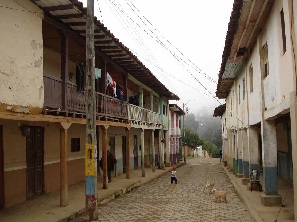Abstract
Vernacular architecture represents the traditional way of building that identifies a location, which has sometimes been unprotected; hence the importance of conservation for continuity over time. The Chuquiribamba parish, canton and province of Loja in Ecuador, is analyzed due to the presence of indigenous people and presenting constructive singularities, allowing cataloging cultural heritage of the state. Despite efforts to preserve this heritage is at risk due to neglect, the process of territorial expansion and the incorporation of new materials. For this reason it is necessary to document its architecture through an inventory, diagnosis, and identification of potential and threats site that allows us to propose guidelines for intervention that articulates the historical fabric and the needs of the population.
Apuntes is registered under a Creative Commons Attribution 4.0 International Public License. Thus, this work may be reproduced, distributed, and publicly shared in digital format, as long as the names of the authors and Pontificia Universidad Javeriana are acknowledged. Others are allowed to quote, adapt, transform, auto-archive, republish, and create based on this material, for any purpose (even commercial ones), provided the authorship is duly acknowledged, a link to the original work is provided, and it is specified if changes have been made. Pontificia Universidad Javeriana does not hold the rights of published works and the authors are solely responsible for the contents of their works; they keep the moral, intellectual, privacy, and publicity rights.
Approving the intervention of the work (review, copy-editing, translation, layout) and the following outreach, are granted through an use license and not through an assignment of rights. This means the journal and Pontificia Universidad Javeriana cannot be held responsible for any ethical malpractice by the authors. As a consequence of the protection granted by the use license, the journal is not required to publish recantations or modify information already published, unless the errata stems from the editorial management process. Publishing contents in this journal does not generate royalties for contributors.


